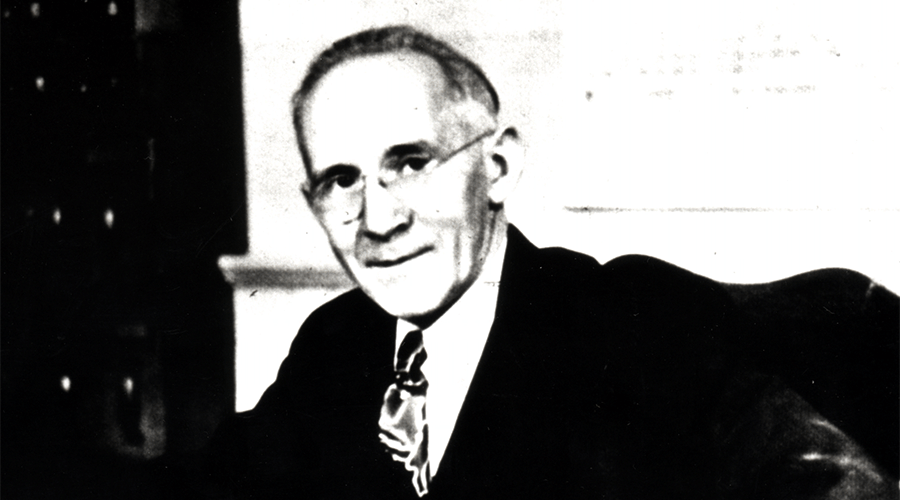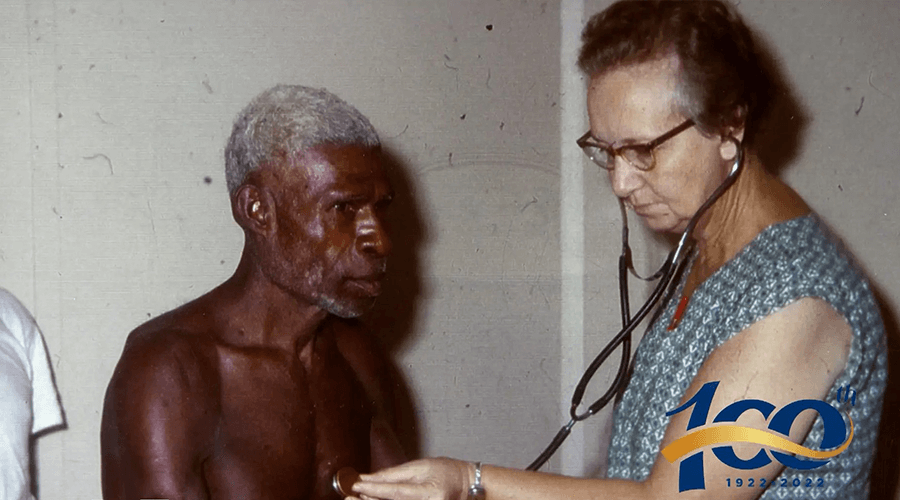Stepping into the Arthur History House in Arthur, North Dakota, is like stepping back in time. Rented for $20 a month in 1923, the small, six-room building with no running water or electricity is where it all began for the Good Samaritan Society.
“Officially established in 1923 but the first resident arrived in 1922,” says Mary Vangerud Leraas, Good Samaritan Society – Arthur administrator.
No longer on Main Street, the Society’s first home sits behind the current independent and assisted living location next to a prayer garden. It was acquired by the organization in 2008, restored and furnished with original documents as well as furniture you would’ve seen in the 1920s.
Mary, often a tour guide for visiting groups, grew up in nearby Valley City. She comes from a family of health care providers and worked in a Lutheran Homes and Hospitals care center as a teenager.
She says the founding of the Society is a source of pride for locals in the area, including her.
“This dream came alive to bring this home here to our second location and create that living piece of history. So we can remember, gather stories and continue our tradition of caring for others,” says Mary, who's been with the Society seven years.
'Outgrew very, very quickly'
When August “Dad” Hoeger opened the home, it did not take long for it to fill up with those in need of quality care.
“This very first home they outgrew very, very quickly. We know from our numbers there were at least 13 people living in this home,” Mary says.
Those first residents included a baby and mother along with children and adults with mental and physical challenges. They lived with two staff members, Augusta Priewe and Lena Gebhardt, and the Rev. Paul Weiss.
Mary adds the pastor, there full-time, had his own bedroom upstairs meaning the other individuals “had to share the other two rooms.”
The Society’s founder, Dad Hoeger, would check in during a monthly dinner with residents and staff.
Soon, a need arose to care for older adults with no place to go.
'Stories of frost on the walls'
While the restored version of the house features electricity, lights and geothermal heating and cooling, that was not the case in 1923.
Mary says life for Augusta and Lena was “very hard. You would have done a lot of manual labor including hauling water. There was no running water. There was always that sense of food scarcity.”
Water came from a cistern, melted snow or wherever it could be found.
“Saturday baths were given right here in the kitchen. Water was hauled from the ditch if it was summer months or fall. Once it froze, you would bring in snow, melt it on the stove and use that for your bath water or any other water you were using for cooking,” Mary says.
Augusta and Lena would have to carry some residents up and down the stairs because they couldn’t walk. They worked long hours, rarely got time off and sometimes went without pay to keep things going.
While residents sleeping two or three to a bed would be awfully hot in the summer, it was a lifesaver in the brutal North Dakota winter.
“There’s even stories of frost on the walls, waking up those cold winter mornings that we’re so famous for in North Dakota,” Mary says.
'This home is inspirational'
The Arthur History House served the Society for two years. The organization eventually expanded to its current spot in town that would feature several new buildings and a working farm.
“This home is inspirational,” Mary says. “We can feel the presence of God in the work that we do. It is truly inspired work. We would not be here 100 years later had it not been a part of the greater plan that God has for us.”
100 years after Dad, Augusta, Lena and more got things started, Society leaders are still asking the question, “Lord, what would you have me do today?”
“I operate as an administrator with a lot of gratitude. We have so much,” Mary says.
“The history is so rich, and we are right where it all began. It ties us to this area. It gives us that sense of purpose and carrying on the heritage and traditions of the Good Samaritan.”



